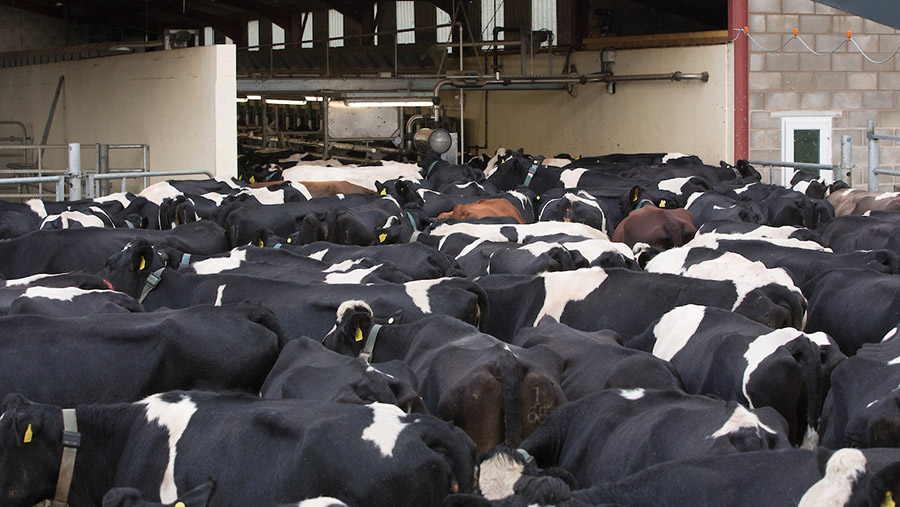Coronavirus: Pensworth seeks government loan to pay for milk
 © Tim Scrivener
© Tim Scrivener Milk processor Pensworth will pay its suppliers just 25% of their standard milk price until it gets an emergency government loan as it battles a slump in demand from the food service sector.
The move will see farmers get an average of 6.25p/litre this week and for the three payment days in April unless money from the government’s Coronavirus Business Interruption Loan arrives.
In a letter to farmers sent on Monday 30 March, trading director David Kent told farmers the company was in the process of arranging a substantial funding package with its bank to bring costs in line with sales.
See also: Coronavirus: Freshways first to cut price as demand slumps
He said: “We need to take these steps to ensure we have a business going forward and can maintain our supplies to the 230 hospitals and 1,700 nursing homes we supply, along with the 100,000 doorstep customers, many of whom are elderly.”
“We will bring your payment up to date once we receive the loan, which we aim to have in place within eight weeks.”
The firm will also be increasing prices, chasing customers for payment where possible, and seeking out new sales opportunities, he said.
Pensworth joins rival processor Freshways in struggling to find a home for milk that would normally have been destined for coffee shops and caterers that have been shuttered since the coronavirus closures.
Meanwhile, processors that supply supermarkets have been benefiting from a surge in demand, with Muller announcing that it will pay 1p/litre more for milk from 1 May.
This brings their standard price to 27.25p/litre for producers who have signed up to the Muller Direct Premium 2020, a raft of animal health and welfare measures which pays a 1p/litre bonus in arrears.
Government help needed
However, NFU dairy board chairman Michael Oakes warned that rapid government action is needed to ensure coronavirus does not cause parts of the dairy sector long-term damage that would limit its ability to meet demand after the crisis is over.
He said this was likely to require a temporary relaxation in competition law to allow processors to help each other meet supply, as well as a reintroduction of intervention buying to temporarily reduce supplies coming to market.
“I know George Eustice is involved,” he said. “It has gone right to the top and we are working to find solutions for the industry – both farmers and processors.”
Intervention buying is not something the NFU likes in normal times but measures beyond financial bailouts were likely to be necessary as the situation was deteriorating, he said.
The downturn is likely to spread to the manufacturing sector as cheesemakers have also seen a drop in demand as customers have not replicated their restaurant consumption in the home.
And, with the spring flush approaching, difficulties with accessing the Chinese market will put pressure on other commodities, he warned.
